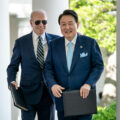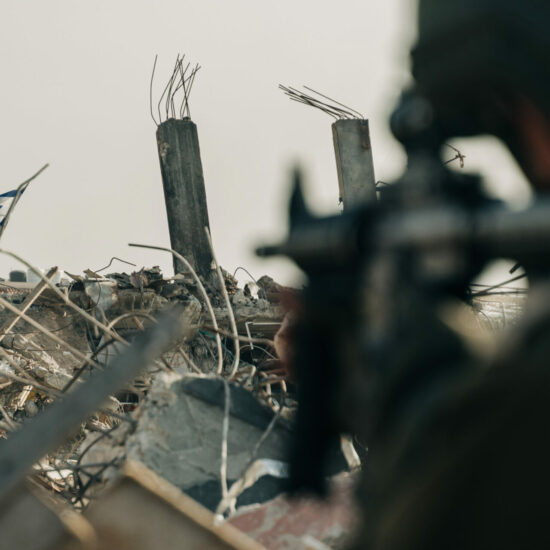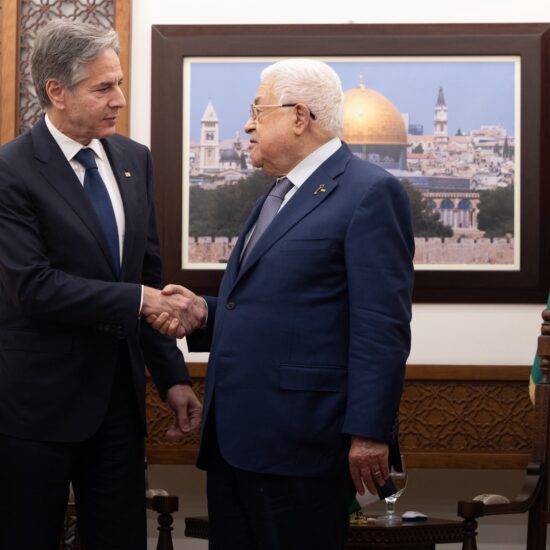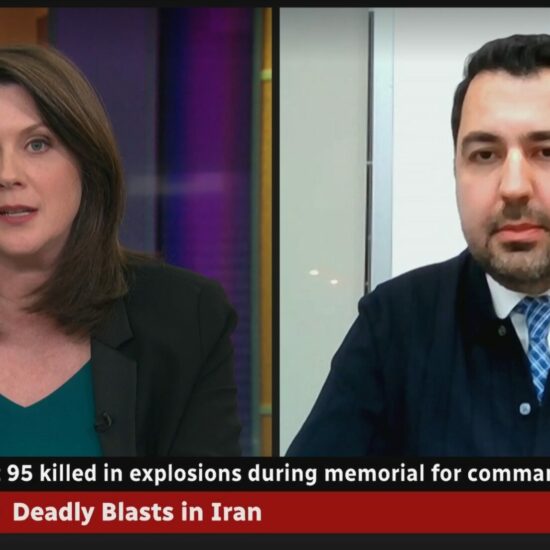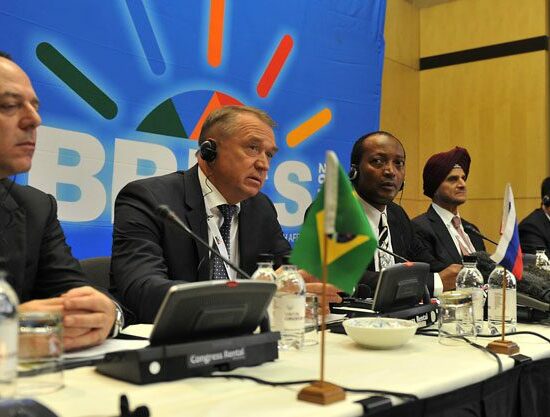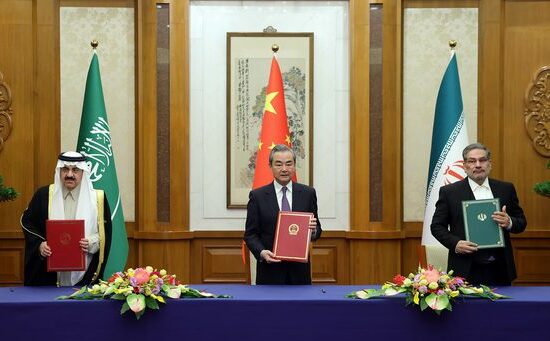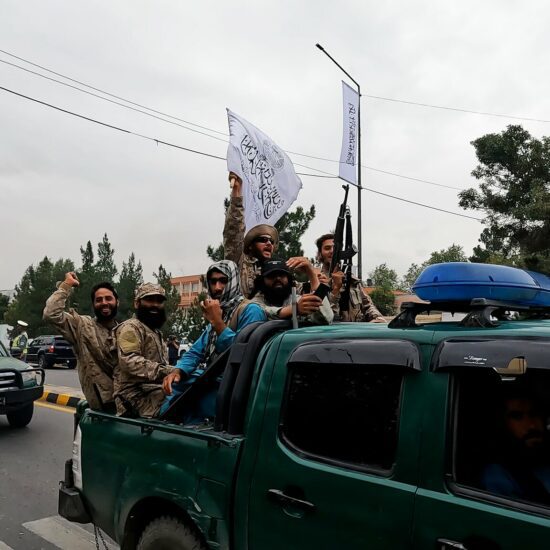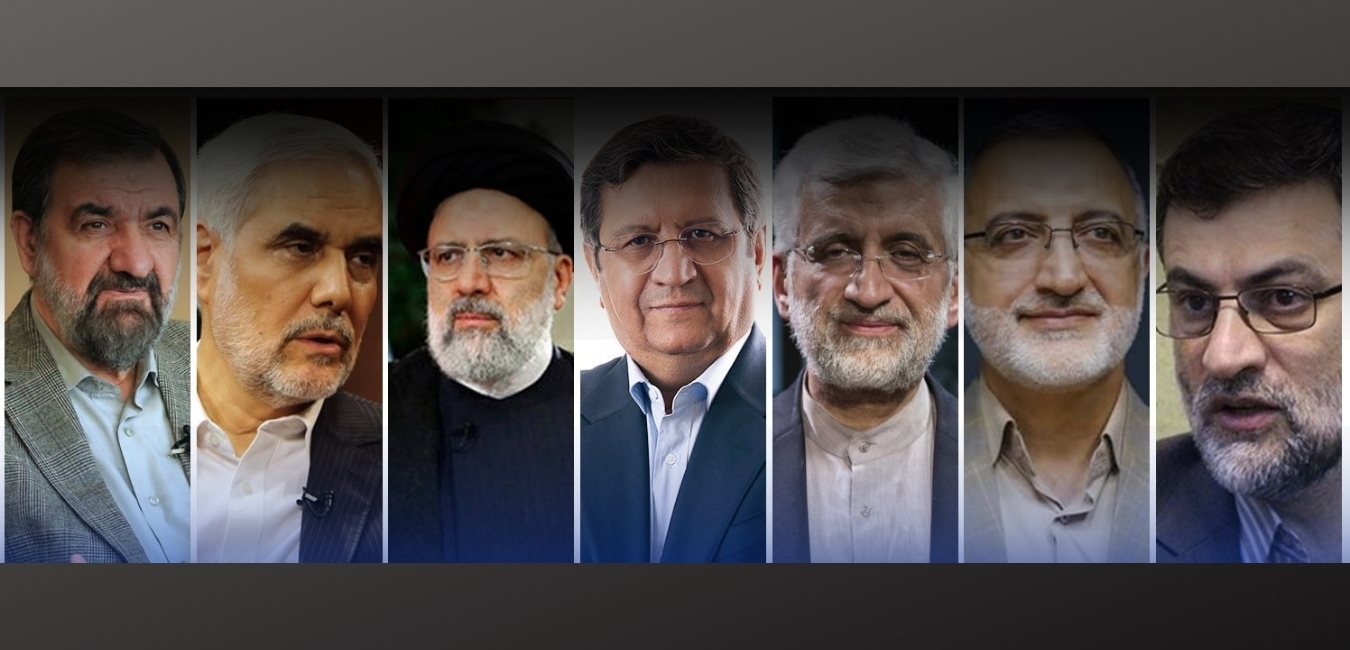
Iran’s presidential elections will be held on Friday June 18th, 2021. Disqualification of several reformist and centrist candidates by the country’s Guardian Council provoked strong reactions within public opinion. The final list of candidates includes five conservatives (referred to as the Principlist Faction) and two lesser-known centrist and reformist figures.
Iran’s foreign policy and national defense strategy are crafted and reviewed by the country’s Supreme National Security Council (SNSC) and require ultimate approval from Iran’s Supreme Leader Ayatollah Ali Khamenei. Per the Islamic Republic’s constitution, the Supreme Leader is both the commander-in-chief of the armed forces and retains final say over national security. Nevertheless, Iran’s President serves as the head of the SNSC, while playing a key role in translating Iran’s grand strategic priorities into workable policies and overseeing their implementation through the foreign and defense ministries. Historically, elected entities and their appointed officials have influenced the decision-making process within the SNSC and other higher decision making bodies of the Islamic Republic as demonstrated by President Rouhani’s significant influence in the nuclear negotiations.
Therefore, the foreign policy positions of Iran’s next president will have implications for the national security strategy of the Islamic Republic which cannot be dismissed. This IPD factsheet briefly explains and contextualizes the foreign policy views of all the Iranian presidential candidates based on their stated policy positions, their track record, and political affiliations.
Ebrahim Raisi
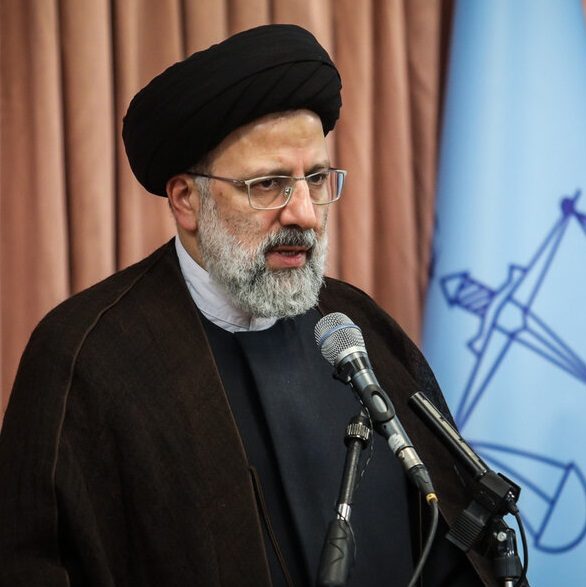
Ebrahim Raisi, Iran’s head of judiciary, is the front-runner in Iran’s presidential election. He has endorsed the Joint Comprehensive Plan of Action (JCPOA), otherwise known as the Iran Nuclear Deal. Despite his past criticism of Iran’s negotiating approach during the 2013-2015 nuclear talks, in his 2017 presidential election campaign, Raisi said that “Barjam (JCPOA) is a national document and must be respected by all.” He also argued that the nuclear agreement “is a blank check that needs to be cashed” and criticized the government of Hassan Rouhani for what he claimed to be JCPOA shortcomings in bringing economic benefits for the country.
A leader of the Principlist faction, Raisi is expected to employ a more assertive rhetoric vis-a-vis the United States and its European and Middle Eastern partners. Nevertheless, it is likely that he will continue Iran’s overarching policy of preserving the nuclear deal in exchange for sanctions relief as this is the stated position of the Supreme Leader.
More recently, the candidate has stated that once in office, he will continue the ongoing nuclear talks with the West. Alireza Afshar, a senior member of Ebrahim Raisi’s presidential campaign, noted that the conservative candidate believes in continuing the nuclear agreement, while approaching it as a “marginal matter that mustn’t be tied to national problems.” In other words, while Raisi will welcome the lifting of sanctions, his rhetoric will be more inward-oriented, focusing on reviving “domestic production”, a key slogan of Ayatollah Khamenei’s “resistance” doctrine. Moreover, instead of primarily focusing on relations with the West, Raisi has pledged to prioritize relations with Iran’s regional partners. From a broader perspective, in order to counterbalance Iran’s damaged relations with the West, Raisi favors deeper military, economic, and political engagement with Iran’s non-Western counterparts, particularly China and Russia.
On regional dialogue, it is believed that Raisi will also endorse the ongoing security talks between Iran and Saudi Arabia, as negotiations have been headed by the Supreme National Security Council (SNSC), the country’s highest national security authority. On other contentious issues, Raisi will be less inclined to negotiate on a follow-on agreement, as Iran’s political establishment has so far been reluctant to endorse a JCPOA 2.0 agreement. However, the final decision about follow-on negotiations is expected to be made in the SNSC and by Ayatollah Khamenei himself, and it may largely depend on the success of current nuclear negotiations and the economic dividends Iran expects to see from sanctions removal.
Another contentious issue for Iran’s national security establishment has been on compliance with the Financial Action Task Force (FATF) standards, which has garnered vigorous debate in Iran’s Expediency Discernment Council. As an ex officio member of the Council, Raisi voted for Iran to delay the full implementation of FATF protocols. However, it is likely that after the revival of the JCPOA and subsequent lifting of sanctions, his administration will comply with FATF terms to ease Iran’s access to the international banking system. Moreover, the Raisi administration is expected to oppose limits on the country’s missile program and assert that it is a major component of Iran’s defensive capability.
If elected, a Raisi administration will spearhead a different national security and foreign policy team in future potential negotiations with the West. Hossein Amir-Abdollahian, a seasoned career diplomat, is the most likely candidate for assuming a key role in the new administration’s foreign policy and geopolitical decision-making. Amir-Abdollahian was the lead negotiator in the 2005 U.S.-Iran talks over Iraq’s political stability, which included three rounds of intense discussions. Amir-Abdollahian has extensive experience in regional diplomacy and has taken a leading role in developing the country’s regional policies. It was previously reported that Rouhani and Zarif pushed Amir-Abdollahian out of the Foreign Ministry, after he had served as Zarif’s deputy for Arab and African Affairs during Rouhani’s first term in office.
In addition, Mahdi Mohammadi—a former nuclear negotiator and current advisor to Iran’s conservative speaker of Parliament, Mohammad Bagher Ghalibaf; and Ali Bagheri Kani—former top diplomat in the nuclear talks and current deputy of the judiciary’s international affairs department, are both candidates for senior positions within Raisi’s foreign policy and national security team.
Abdol-Naser Hemmati
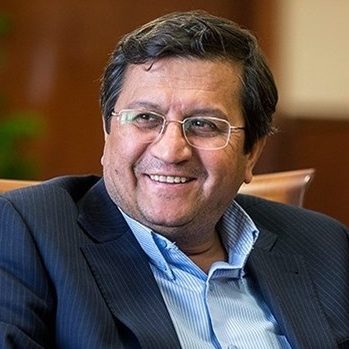
Abdolnaser Hemmati, the former head of the Iranian Central Bank during the Rouhani administration, is the leading centrist candidate in Iran’s presidential election. Hemmati has fully endorsed the JCPOA, while praising the efforts of Mohammad Javad Zarif, Iran’s current Minister of Foreign Affairs, who negotiated the agreement with the P5+1.
He has pledged to fully implement the JCPOA and use its economic dividends to boost the country’s development. He has also intimated that the overarching policy of his administration will be “de-escalation” with the West.
Recently, Hemmati went so far as to express his willingness to meet with President Biden, conditional on the United States sending “better and stronger signals” to the Islamic Republic. He believes that Biden has not made a serious effort to revive the nuclear agreement, stating that once the nuclear agreement (i.e., JCPOA) is revived and confidence building measures are adopted, there will be room to discuss other issues with Washington. However, as stated earlier, the ultimate decision-maker on the future of negotiations with the West is the SNSC and the Supreme Leader of Islamic Republic.
Moreover, Hemmati has stated that he aims to forge strategic relations with the three major non-Western powers: China, Russia, and India. It is worth noting that prior to being appointed as Iran’s top banking official, Hemmati briefly served as Iran’s ambassador to China. Hemmati has also prioritized regional dialogue and fully endorsed Saudi-Iran security talks, expressing his hopes for stronger and warmer relations with Riyadh. He noted that his government will not view Saudi Arabia and UAE as enemies and has previously strongly criticized those responsible for attacking the Saudi embassy in 2016.
The one area that Hemmati has clearly broken with Raisi is with respect to the FATF debate, where Hemmati has criticized the Expediency Council for failing to approve the international protocols. Instead, he contends that complying with FATF terms will be critical for the country’s economic well-being, arguing that as long as Tehran remains under FATF blacklist, even China and Iraq (that are considered close partners of Iran) will be hesitant to engage in financial transactions with Iran. During the presidential debates, Hemmati accused his conservative opponents, who opposed the implementation of FATF, of playing into Trump’s hands. Lastly, Hemmati has also defended Iran’s missile program, maintaining that he too will refuse Western calls for placing limits on the country’s defensive capabilities.
If elected, a Hemmati administration is expected to retain the current foreign policy team. Most specifically, Hemmati has stated that he hopes to continue working with Foreign Minister Mohammad Javad Zarif.
Saeed Jalili
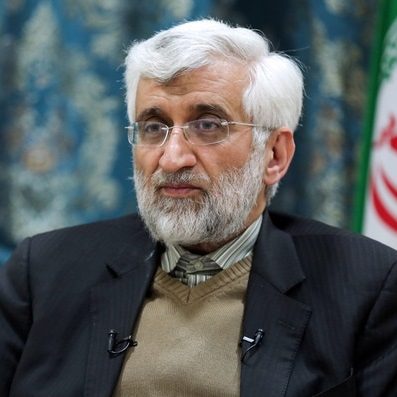
Update: Saeed Jalili announced his decision to withdraw his candidacy on June 16.
Saeed Jalili, Ayatollah Khamenei’s representative to Iran’s Supreme National Security Council, is a conservative candidate running for presidency. From 2007 to 2013, Jalili was Iran’s lead negotiator with the P5+1. During this period, Iran-West tensions escalated rapidly, when the Obama administration formed a multilateral sanctions regime at the UN Security Council (UNSC) against Iran’s nuclear program.
While conservatives praise his assertive approach in refusing Western demands, reformists blame Jalili and former President Ahmadinejad for the formation of a multilateral consensus at the UNSC against Iran. During the negotiations, Western diplomats who met Jalili, then the deputy foreign minister, alleged that he tended to voice “strongly held views and stuck firmly to his position” noting that he was more interested in “monologue” rather than debate. Jalili was a serious critic of President Rouhani’s more conciliatory approach to the West in the nuclear talks post-2013.
Following the conclusion of the nuclear talks and the signing of the JCPOA, Jalili criticized the agreement as weak and ineffective in lifting sanctions on Iran. However, in his recent remarks, Jalili has stated that he is not, in principle, opposed to negotiating with the West. He has argued for “neutralizing” the US-led sanctions regime by focusing on domestic capabilities and alternative trade mechanisms, such as utilizing the barter system. On FATF, Jalili has argued that complying with the organization’s terms will not bear economic fruits, thus opposing implementation of FATF protocols.
If elected, Jalili is expected to strongly oppose negotiations on a follow-on agreement and to adopt a tougher stance on regional matters. Prioritizing the national security significance of Iran’s missile program, he is expected to also rule out any compromise over Iran’s military capabilities in line with other Principlists.
Mohsen Rezaei
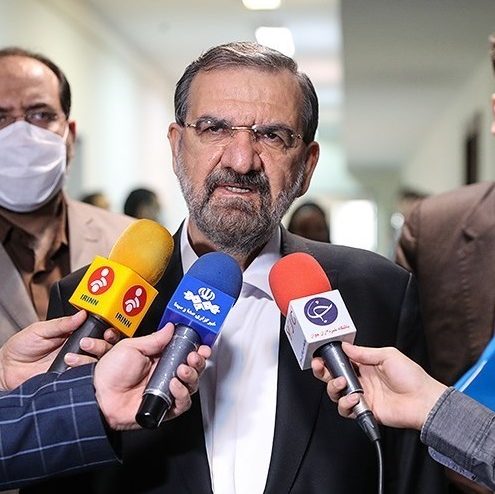
Mohsen Rezaei, the former Head of Iran’s Revolutionary Guards Corps (IRGC) and the current secretary of Iran’s Expediency Council, is another conservative politician running for presidency. He has stated that once he assumes office, the West will be inclined to return to the JCPOA. Boasting his economics degree, Rezaei has emphasized the importance of economic diplomacy, pledging to “activate” the economic sections of Iran’s embassies across the world to secure relief from U.S. sanctions.
Despite Rezaei’s decision to delay the implementation process of FATF protocols within the Expediency Council, his close advisor, Darvish-ali Karimi, has stated that Rezaei has no reservations against engaging the “entire world”, if mutual interests are respected and addressed. Moreover, Rezaei is expected to refuse any concessions over Iran’s ballistic missile program, and it is unlikely for him to support a follow-on agreement with the P5+1. Mohsen Rezaei has been widely criticized for his rhetorical posturing against the United States. During the first presidential debate, Hemmati criticized Rezaei for suggesting that Iran should take American soldiers hostage. Rezaei claimed that his remarks were taken out of context, and that they were meant in response to US military threats against Iran.
If elected, given Rezaei’s staunch criticism of the Rouhani administration’s negotiating strategy, it is likely that Rezaei will replace Mohammad Javad Zarif with a more conservative figure.
Amir-Hossein Ghazizadeh Hashemi
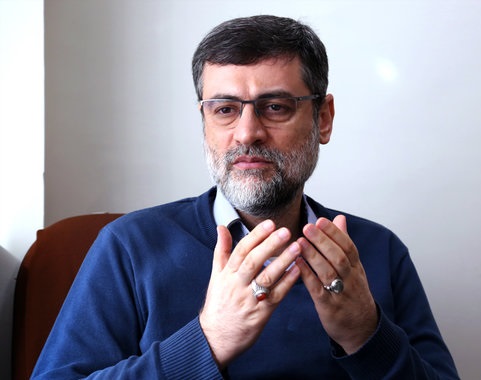
Amir-Hossein Ghazizadeh Hashemi, Iran’s current deputy speaker of Parliament, is a conservative politician running for presidency. Similar to other Principlists, He too has expressed his willingness to implement the JCPOA and pursue ongoing nuclear talks with the P5+1. However, he has also argued for “neutralizing” sanctions, rather than solely focusing on lifting sanctions through negotiations with the West.
Ghazizadeh Hashemi has stated that an ideal foreign policy team needs to be educated in international law, and that an ideal foreign minister ought to be an “international businessman.” He has also pledged to prioritize engagement with the Iranian diaspora. He has emphasized pursuing closer relations, particularly economic ties, with Iran’s closest neighbors. In line with fellow Principlists, Ghazizadeh Hashemi has also opposed concessions over Iran’s ballistic missile program.
If elected, Ghazizadeh Hashemi is expected to replace Mohammad Javad Zarif with a more conservative foreign policy official.
Mohsen Mehr-Alizadeh
Mohsen Merhalizadeh, the former governor of Iran’s Isfahan Province and a former Vice President of the reformist Khatami administration, was the only reformist candidate running for the presidency. However, he was unable to attract popular support among voters including in the reformist camp and officially announced his decision to drop out of the race on June 16, 2021.
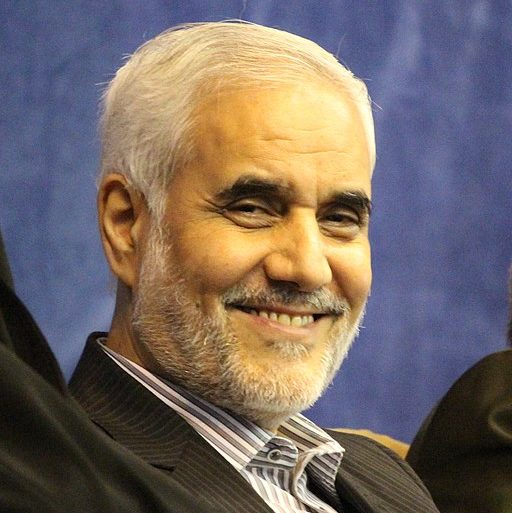
Alireza Zakani
Zakani, a conservative candidate, dropped out of the presidential race on June 14, 2021, endorsing the frontrunner Ebrahim Raisi.
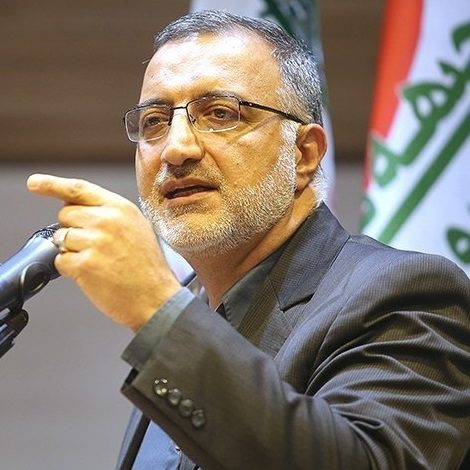
Image credits:
Header: Iran’s presidential candidates, Rokna
Ebrahim Raise: Mehr News Agency, CC BY 4.0, via Wikimedia Commons
Abdol-Naser Hemmati: Tasnim News Agency, CC BY 4.0, via Wikimedia Commons
Saeed Jalili: khamenei.ir, CC BY 4.0, via Wikimedia Commons
Mohsen Rezaei: Mahmood Hosseini, CC BY 4.0, via Wikimedia Commons
Amir-Hossein Ghazizadeh Hashemi: Leila Ghodratollahi Fard, CC BY 4.0, via Wikimedia Commons
Mohsen Mehr-Alizadeh: Hosseinronaghi, CC BY-SA 4.0, via Wikimedia Commons
Alireza Zakani: Tasnim News Agency, CC BY 4.0, via Wikimedia Commons

